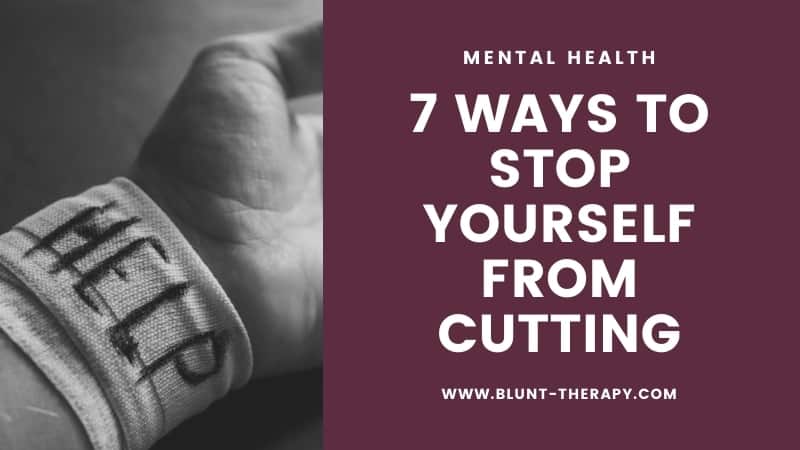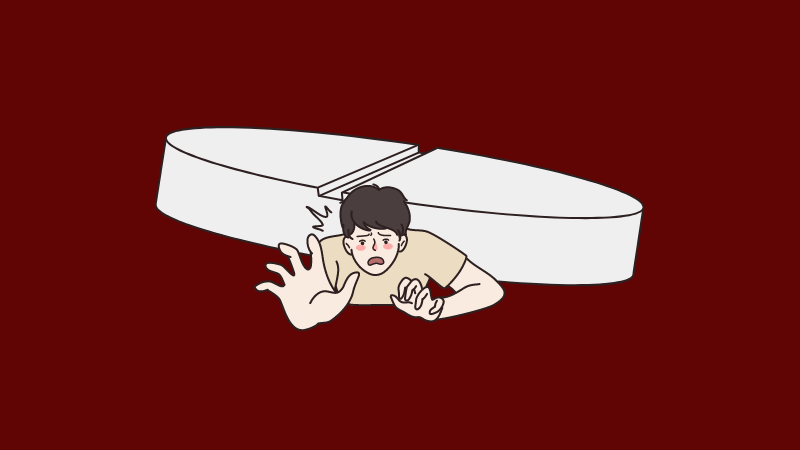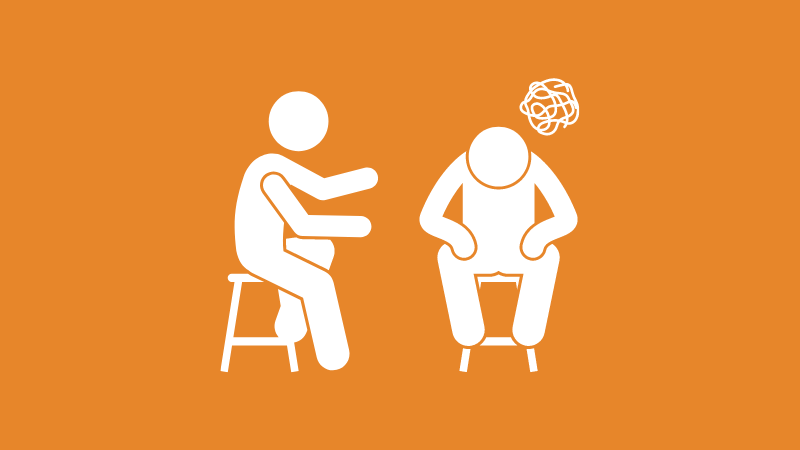Table of Contents
Affiliate link notice: As an affiliate of BetterHelp and other third-party vendors, We will receive compensation if you make a purchase using the links provided on this page. For more information, visit our disclosure page.
Last Updated on December 12, 2021 by Randy Withers, LCMHC
Narcissistic abuse will shatter you. It will leave you doubting and questioning your own sanity.
Your abuser will haunt your dreams, leaving you disturbed and in tears. Even asleep you will remain caught in the grip of his abuse.
There will even be those times when, ironically, your subconscious reminds you of the loving, tender moments when the narcissist lavished you with what you believed was love. You’ll feel trapped in a mind-bending, horrific web of deceit.
Does that sound familiar?
If it does, you are not alone. You are not crazy. You are not weak. This is what narcissistic abuse does to people.

What Is Narcissistic Abuse?
Narcissistic Abuse is a form of psychological warfare seen in dysfunctional relationships that employs the use of lies, gaslighting, manipulation, threats, and other forms of controlling behaviors.
Narcissistic abuse can be emotional, mental, physical, financial, spiritual, or sexual in nature.
The Narcissistic abuser manipulates others to fulfill his desires at any cost. He does not feel love or guilt in the manner you do. When he hurts others, it does not bother him. In fact, he enjoys it.
He is an empty soul who will suck the life out of everyone around him to fill himself up. He only feels good when he gets his way, even if others are left crushed and demoralized in his wake.
If he is losing control, he will say anything or sacrifice anyone to regain his power. It matters not if it is his partner, child, parent, or ‘friend.’ His first concern will always be himself. He has no moral code.
This insidious abuse changes you. It affects the way you think about yourself and how you respond to others. It’s like a thunderous cloud that covers you day and night.
Note: This is not an occasional behavior, but it is a consistent, ongoing pattern of abusive behavior. Although there is no doubt that Narcissistic Abuse exists, currently it is not a clinical diagnosis in the Diagnostic and Statistical Manual of Mental Disorders, Fifth Edition (DSM-5).
Long-term effects of narcissistic abuse
At its core, Narcissistic abuse is a soul-crushing, crazy-making form of abuse. Its purpose is to render the victim helpless to serve the Narcissist’s desires.
It slowly builds layers of emotional scars upon scars. Over time, it affects your identity, mental and physical health on the deepest levels. The extent of the damage depends on how long you are exposed to your abuser.
It feels like you are living in a war zone. Narcissistic abusers deal in psychological and emotional torture, spiritual degradation, physical abuse, and isolation.
All boundaries are lost. The abuser, who must be in total control, breaks down your boundaries one by one. When control begins to slip, abuse intensifies.
The abused begins to believe they are defective. They come to believe the narcissist is a superior being, the victim is told this time and time again. The victim’s thinking conforms. They no longer think rationally. The confusion is profound.
7 Steps To Healing from Narcissistic Abuse
You are not doomed to suffer from the effects of narcissistic abuse forever. But it does take work to heal. You cannot stay with your abuser, nor can you allow him to torture your subconscious once you have removed yourself from the situation.
1 Get to Safety
If you are wounded, you cannot begin to heal while living in a war zone. When you are living with a narcissistic abuser, you live every day under attack. To heal you must leave the abuser. You must go ‘no contact’ with your abuser.
If you cannot go ‘no contact,’ maybe children are involved, always meet in a public place or have someone with you. Never, ever let them come to your new home; never be alone with your abuser again. If you can prevent it, do not let them know where you live.
2 Stabilize your life and living conditions
You may need help in the beginning. Many victims stay in an abusive relationship because they don’t have the financial resources or support to leave.
Your abuser will only think of himself. Remember, it is all about him. He will never make it easy for you to leave while you are supplying his needs. He will make you believe that leaving him is impossible. Remember it is NOT love. It is inevitable that one day he will discard you. That is his nature. Go now!
You will have to be creative. Do not risk your safety by staying. Many cities in America have secret places where abused women and their children can be housed and helped to start a safer life. There are resources listed below that can be of help.
Often victims ‘keep the secrets’ from their family and friends. This is exactly what your abuser wants you to do. It gives him power. You remain isolated.
Let’s talk about why you have kept the secrets. You feel embarrassed, ashamed, and guilty about what occurred in your home.
Your abuser has told you repeatedly that you are stupid; that you are crazy; and he can show a most charming face to the world. Right? You are nothing… he is everything!
The thought of speaking out gives you a knot in your stomach. It makes you panic. It makes you cry. But you have made the decision to leave. Get to safety. Then tell the secrets.
It’s time to shout it from the mountain tops. Tell your friends and family; you need their support. Tell everyone you know. Take his power away.
But be safe, as you would with any type of abuser. Hopefully, your circle of support will help you until you can get out on your own.
But you have to let them know your circumstances.
3. Process the Trauma
In a narcissistic abuse relationship, you feel unsafe. Your abuser has constantly intimidated and berated you. Some even physically abuse. Always remember, whether they ever hit you or not, they have been verbally and emotionally abusive.
He has withheld affection, brainwashed, gaslighted, falsely accused you, belittled, cursed you, made you feel crazy and stupid. You have walked on eggshells. His rage was taken out on you. He lied, cheated, and took from you until you had nothing else, he wanted.
The relationship has been only about satisfying his needs. He could not handle your achievements or serenity, so he set out to take them from you by any cruel means he could. He is a dark soul who must feed on and destroy others to feel better about himself.
Removing yourself from your abuser, will be your first step toward your recovery and emotional good health. Even then, the psychological and physical damage done will not disappear overnight. It will be a process over months or even years to emotionally regulate and to feel secure.
It is difficult after being with a narcissistic abuser to trust your own judgment, much less trust others. After all, for so long you have been undermined, it will be difficult to trust your own judgment.
You have been betrayed in a malicious way. Understanding your trust issues; becoming aware of your self-doubt; and how it affects your daily life is a big step back to wholeness.
| Masks real self | Throws Tantrums | Brainwashes | Uses Others |
| Fake cries | Withholds Affection | Discards | Starts drama |
| Destroys | Idealizes and Devalues | Bullies | Switches Masks |
| Charms | Gaslights | Denies | Abuses |
| Abuses Porn | Intimidates | Controls | Ignores |
| Steals | Projects | Cheats | Plays Mind Games |
| Abuses Substances | Falsely accuses | Lies, lies, and lies | Taunts |
| Blames | Mirrors | Stalks | Manipulates |
| Isolates | Taunts | Triangulates | Smears |
| Competes | Betrays | Threatens | Stonewalls |
4. Process the Grief and Loss
It is important to realize you are going through a grief process. You have lost someone you loved, possibly your home, and a life in which you were involved. Even though he was abusive, at some point he was charming and appeared to love you.
You formed an attachment and built a life with him. Good or bad, you believed you were in a genuine relationship. Now it’s all gone, and you are starting over.
You will have mixed feelings about this loss. Even though you are no longer being battered, the irony is that a large portion of your feelings in the beginning will be centered around the grief and loss.
You will not believe someone can be that callous and self-centered. Parts of the fantasy will still exist. They will be the hardest to let die.
In reality, the narcissistic abuser’s intent was malicious. No matter how you feel, it was not about you… it was all about them and their selfishness.
The Narcissist abuser depleted or removed all your resources, so you have nothing. He made sure you were left empty-handed. He derives pleasure from thinking that you will not survive without him.
As time passes, this will change, and you will realize you have made it without them. You have lost nothing except someone who thought only of themselves and nothing about the safety and survival of you and yours.
5. Redefine Yourself
Being abused changes how you think about yourself. You heal much quicker from a physical wound than you do from an emotional wound. The narcissistic abuser leaves psychological/emotional scars, although some also use physical abuse as well. They leave a special type of scar.
This abuser has taught you what he wants you to think; your thinking has conformed. If you have been told you are stupid or ugly, that is what you have come to believe about yourself.
Depending on how long you remain in the abusive situation and its severity, that will be a determining factor in your recovery. But recover you can!!!
Awareness is always the key. When the self-degrading thoughts begin, stop immediately. Do not entertain his lies. Backtrack and replace the thoughts with more positive ways of viewing yourself.
YOU ARE STRONG, or you would not have survived. Do not allow YOU to become your abuser. If you do, game over! He wins; you lose.
6. Get Connected
The Narcissist’s strength is in your isolation. This probably means you have been cut off from your family or have minimal contact.
In most cases his friends were your friends. You may have a friend or two who you can call yours. But you didn’t see them much during the relationship.
Now you have the freedom to develop a circle of support. It is ever so important to your future success. It’s time to contact those old friends and reconnect.
You can make friends with those work acquaintances that you never could before. You can have meaningful relationships. You can now choose a place of worship; join a club; go out on Saturday night with friends; or just spend quiet time with alone or have a pleasant family time with your children.
Above all, if you value your extended family, reconnect and let them know what has been going on. If that is not what you want, make a family of your choosing. The point is to create a circle of support, people you can count on… always.
7. Create a New Future
You have a second chance at life. It’s all yours. What are you going to do with this brand-new untarnished part of your life? That is a tremendous thought when you are first faced with a clean slate. It may be smudged with memories and other issues that need to be worked out, but in time it will happen.
Don’t let that undo you. Always be ready when opportunity comes knocking… and it is pounding at your door right now. OPEN UP YOURSELF TO POSSIBILITIES. Never again will you have to listen to the degrading rhetoric of a narcissist.
Your walls breathe ‘peace’ to you as you enter your space. This is your chance to make a place for yourself in the sun.
Final Thoughts on Narcissistic Abuse
To waste your life being used as Supply is to give your life over to the Narcissist. They will use and destroy everyone and everything with whom they come in contact, even their families.
For a person who has the realization that they want to heal, remaining with their abuser simply cannot be an option. Metaphorically square your shoulders. Seek help. And be honest with the people in your world.
Becoming aware of your weaknesses, your needs, and exercising your strengths will shape you into a survivor. It isn’t easy and it doesn’t happen overnight.
After being verbally, emotionally, and sometimes physically abused and then discarded, you are wounded. Trust is usually no longer in your vocabulary. To prosper in this life, you must literally rise out of the ashes of the past like the phoenix. It absolutely can be done with awareness and hard work. You are not alone.
The Narcissist wants you to remain in the destructive quagmire where he put you. He wants to believe that you can never be more than his lies. You are a survivor. Choose to rise like the phoenix.
The abuse and trauma you suffered is not your fault. You can get your life back.
“Live well. It is the greatest revenge.”
The Talmud
Helplines within the United States:
- Counseling can help you with your unique issues that surface after experiencing narcissistic abuse. Visit BetterHelp to start working with a licensed therapist today. Get 10% off with this link.
You can also call helplines who have someone to talk to you about what has happened to you or get guidance about what to do.
- National Domestic Violence Hotline
Phone Number: 1-800-799-SAFE (7233) - National Sexual Assault Hotline
Phone Number: 1-800-656-HOPE (4673) - Safe Helpline (for members of the military)
Phone Number: 1-877-995-5247
If you’re in immediate danger, call 911.
References
- How to Spot Narcissistic Abuse – Psychology Today
- 12 Signs You Might Have Narcissistic Victim Syndrome – Healthline
- 9 Tips, Tools, and Strategies for Narcissistic Abuse Recovery – Healthline









Thanks for sharing! I have a family member who deals with this. Lots of good information.
I’m processing the trauma, now that I know what it is, and working my way to healing. Thank you for a great resource and helping give a voice to victims of emotional abuse. We have been devalued for so long it’s affirming to read confirmation of what we’ve endured.
Keep working on yourself! It pays off!